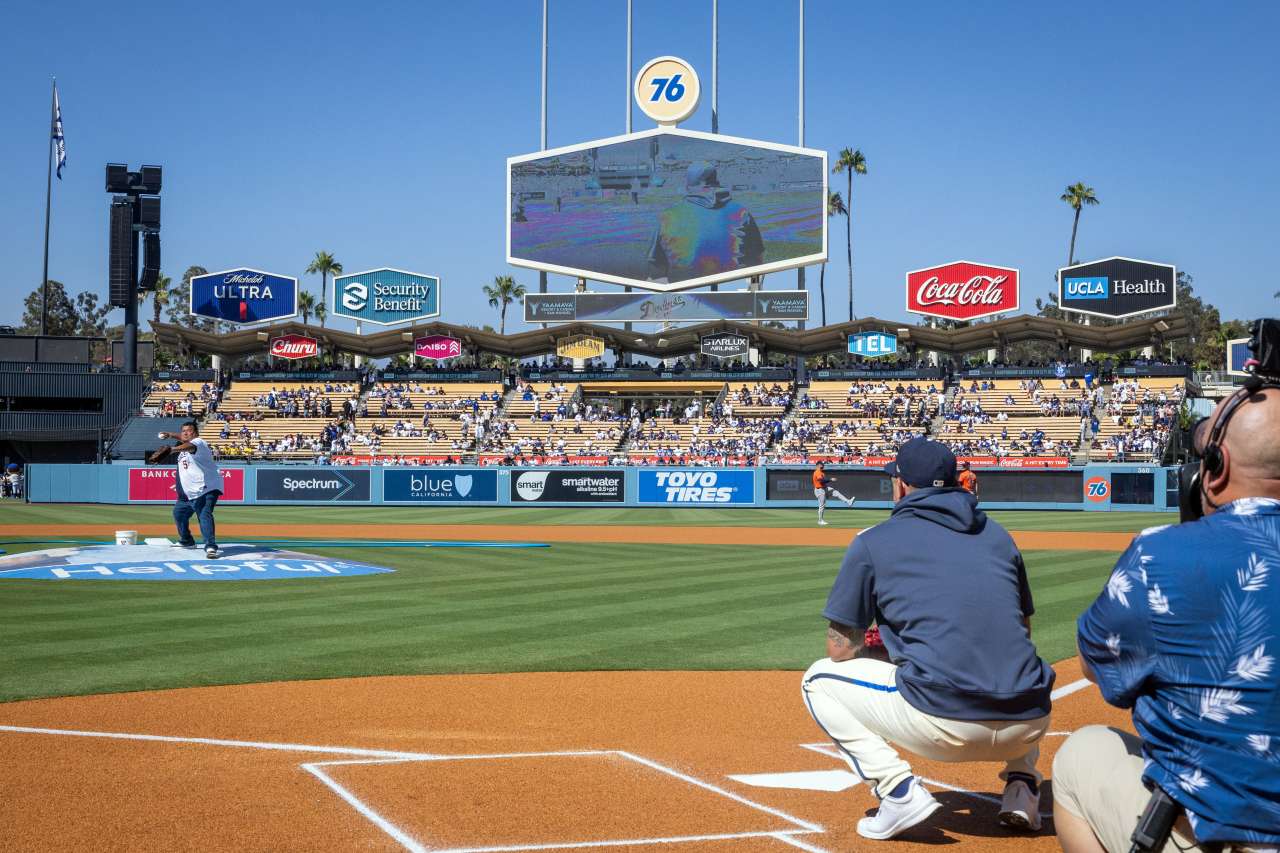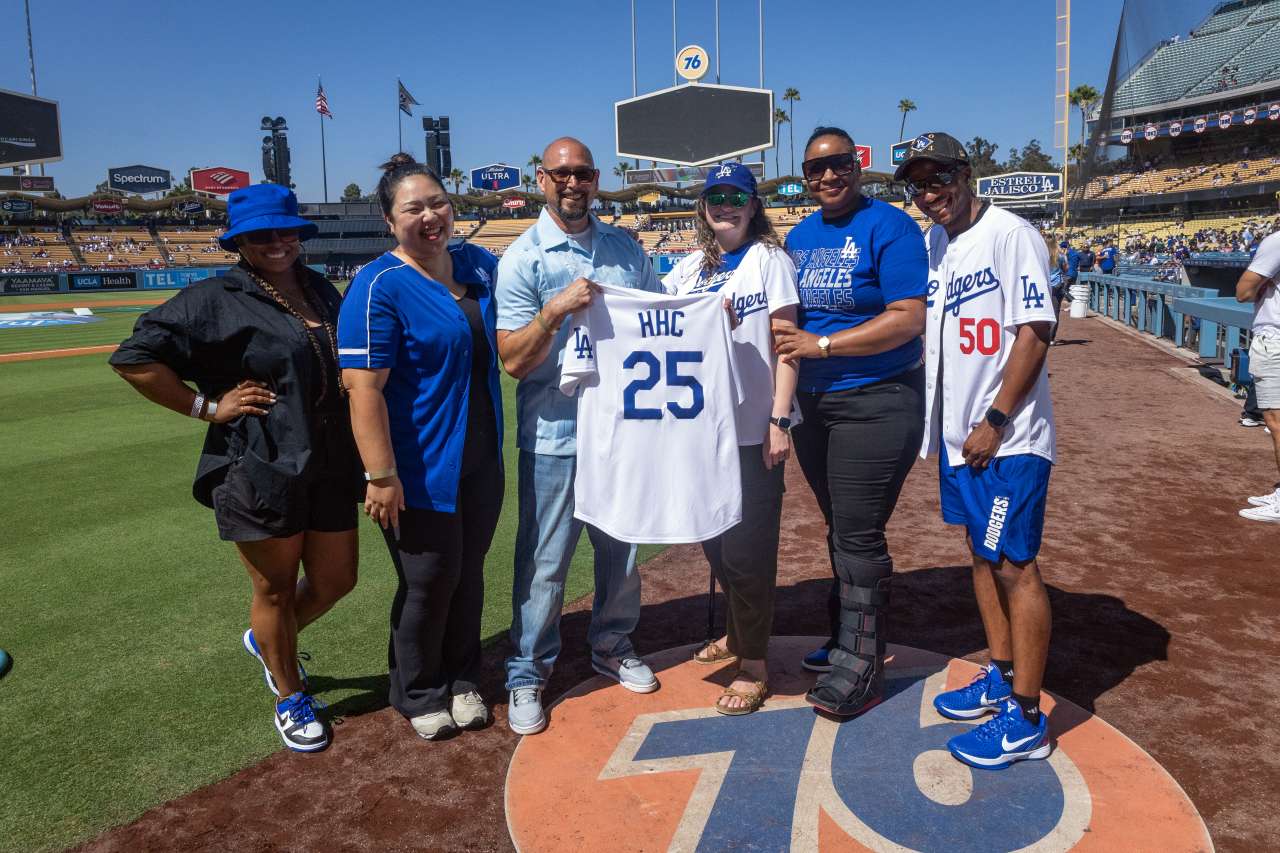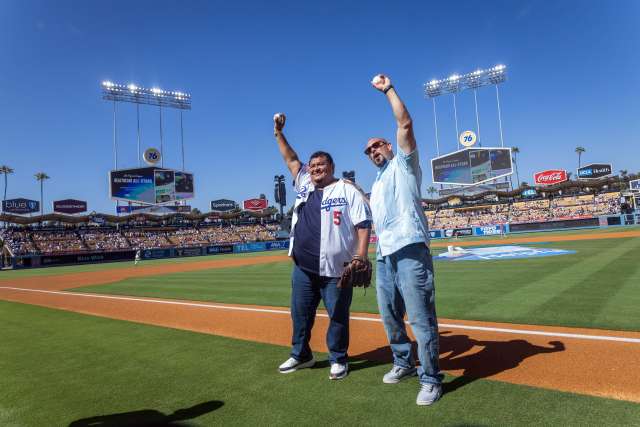Jose Morales felt he had nothing to live for. Homeless, alone and regularly drinking more than 20 beers a day, he wished he would die in his sleep.
“I didn’t have anything,” says Morales, 40, who was living in a homeless encampment in South Los Angeles. “I didn’t have any hope, any motivation to live, to get up on my feet and live again.”
He was suffering from anxiety attacks, struggling with basic hygiene and food, and hopelessly addicted to alcohol.
The first inkling of change came when Morales found the courage to approach the UCLA Health Homeless Healthcare Collaborative (HHC) van that visited the encampment every month. Staffed by physicians, nurses and mental health care providers, the mobile unit delivers critical health services to people experiencing homelessness in L.A. County.
Neither Morales, nor the staff who treats thousands of patients a year, knew what a difference HHC would make in his life. And if it weren’t for a chance encounter, HHC workers still might not know.
Seeking help
Morales first approached the HHC van in June of 2023 because his feet were painfully swollen. A doctor gave him a pair of compression socks and offered to put them on for him.
“I didn’t let her because, to be honest, my feet stink back then, and I didn’t want her to smell that,” Morales says. “But she was willing to do that. It was very surprising for me that there are people who are willing to help homeless people without any problem, you know?”
That kindness inspired Morales to check in regularly with the mobile unit when it came to the encampment. He asked for bathing supplies and medication to ease his anxiety.
After about a year, Morales asked for the kind of help that would ultimately change his future.
He remembers coming back to his tent late one night, drunk, knowing he had hit bottom. He looked up at the sky and, in desperation, cried, “Help me, man.”
He didn’t know who he was talking to or if anyone was listening, but he knew he needed help.
He wanted to stop drinking.
“I didn’t want to keep living that life,” he says. “I was sick. I was tired of being on the street, homeless, without anything. Sometimes I’d have to choose between buying something to eat or buy a drink. In those moments, it was better to keep drinking, to keep under the influence, than eat something.”
Morales says he’d tried to quit alcohol on his own, but the withdrawal symptoms were overwhelming. (Acute alcohol withdrawal can cause seizures, delirium and death.) He finally turned to HHC, asking if they could help him get into a hospital where he might detox for a few days, “then come back and try to do something with my life.”
A new chapter
HHC community care managers Jose Avina and Rocky Washington, along with nurse Candice Grey, RN, and physician Phillip Brown, MD, worked together to find a facility to treat Morales. They made an appointment at a treatment center in the San Fernando Valley and told him not to worry about a thing – they would take care of everything he needed.
A few days later, they brought him two pairs of pants, several shirts, a pair of shoes and a pair of slippers, Morales recalls. Avina met him on the morning of the appointment and rode with him to the facility.
Morales’ prayer had been answered.
He spent a week in detox. Discharged and back at the encampment, Morales immediately turned to HHC again. He feared he wouldn’t maintain his sobriety in that setting. Could they help him find a place to extend his recovery, where he could have a respite from street life and his tent “that smelled like everything but clean?”

Avina and his colleagues scrambled to find a solution, ultimately securing a bed for Morales in a recovery house in Long Beach where he could spend 60 to 90 days.
“I don’t know what they did. I don’t know how many people they had to talk to,” Morales says. “But thanks to them, I was admitted into (the treatment center) and my life changed completely.”
The first few weeks were the hardest, he says. He fought with himself to stay there and make a real effort at living a sober life.
Gradually, though, he felt himself recovering physically. Ultimately, he experienced mental and spiritual recovery, too.
“I found hope in this place,” Morales says. “I found hope with those people sharing their experience, their strength and hope.”
Morales ended up staying at the center for four months. During his last month there, he met Daniel, who would become his sponsor in 12-step recovery.
With Daniel’s help, Morales moved into recovery housing after leaving treatment. Daniel introduced Morales to his family and a group of sober friends, and even helped him get a car and find work. Morales drives for Lyft and makes deliveries for Amazon.
An unexpected reunion
Avina, who is also a substance abuse counselor, had wondered what happened to Morales. Once he went into the extended recovery center, they lost touch. Confidentiality issues prevented Avina from inquiring about Morales at the center. None of Avina’s colleagues had heard from him.
“It was one of those things where we were just hoping that things went well in his process of going through the program,” Avina says.
One day, Morales was driving for Lyft when he picked up a passenger who looked familiar.
“Do you work for UCLA Health?” he asked. He remembered Hannah Lee's face – she was a physician’s assistant with HHC.
She did, she said.
Morales told Lee he remembered her, that she had helped him when he was living on the street. He asked if she knew Jose, Candice and Rocky – the trio that had helped him get into treatment.
She’d just been with them moments earlier.
“Let’s go back!” Lee said.
When they arrived at the work site, she approached Avina, telling him, “I’ve got a surprise for you.”
Avina walked over to the car and his jaw dropped.
“I was like, ‘Jose?!’ Avina recalls. “And it was funny because the first thing that came out of my mouth was, ‘You gained a little bit of weight!’”
What he meant was that Morales looked healthy, Avina says. His skin was bright. He was standing tall. He looked like someone who was doing well.
As a substance abuse counselor, Avina has seen many people get sober, but far fewer stay that way. To see Morales thriving a year later was invigorating.
“Going from where he was to where he is now is just amazing,” Avina says. “We had this really great person who just really took advantage of the opportunity and it was just great to see that.”

Avina and other members of the UCLA Homeless Healthcare Collaborative were recognized as health care heroes at a recent Dodgers game, where Morales was able to thank them all in person.
He says it feels like life is beginning again. He reconnected with his mother, from whom he’d been estranged. And he makes a point to speak regularly about his journey to sobriety at the treatment centers where his recovery began.
“That’s the best reward, to have the chance, or have the blessing, to go to those places again and tell the people that it’s possible, that there’s hope,” Morales says. “If they don’t believe anybody else, they can rely on me because I was there … coming from the streets, without anybody around me. If I was able to do it, other people are capable to do it as well.”
